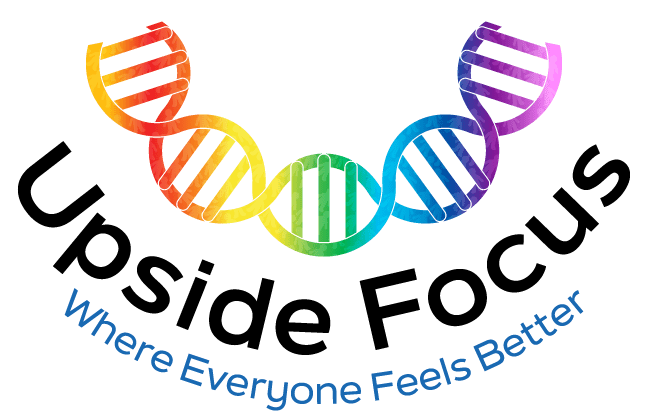Protein is one of the most important macronutrients because it is the foundation of growth and muscle development. When you eat protein, it is broken down in your stomach and small intestine into individual amino acids, using enzymes such as pepsin and trypsin. Protein is one of the hardest things to digest, so if you are eating meat, chew it carefully, don’t swallow it in big chunks-that’s indigestion and gut issues just waiting to happen!
So, what does your body use Amino Acids for?
• They build muscle
• Grow and repair body tissue
• Make hormones and neurotransmitters for your brain
• Provide an energy source
• Maintain healthy skin and hair
• Boost your immune system
The Amino Acids
Your body needs 20 different kinds of amino acids to function correctly. These combine in different ways to make the necessary proteins for your body.
You can think of amino acids like the letters of the alphabet. When you combine letters in various ways, you can make different words. The same goes for amino acids-when they are combined in various ways, your body can make different proteins.
Essential Amino Acids
Essential amino acids are a group of nine amino acids that the human body cannot synthesize on its own, which means that we need to get them from dietary sources. These amino acids are essential for various physiological functions, including protein synthesis, neurotransmitter production, and metabolic processes.
The nine essential amino acids are:
• Lysine is crucial for collagen formation, tissue repair, and calcium absorption.
• Tryptophan is a precursor to serotonin, a neurotransmitter involved in mood regulation and sleep.
• Methionine plays a key role in methylation reactions, which are essential for DNA synthesis and gene expression. Methionine also helps with the absorption of essential minerals, including zinc and selenium.
• Histidine helps make a neurotransmitter called histamine which plays an important role in your body’s immune function, digestion, sleep and sexual function.
• Isoleucine is involved with your body’s muscle metabolism and immune function. It also helps your body make haemoglobin and regulate energy,
• Leucine helps your body make protein and growth hormones. It also helps grow and repair muscle tissue, heal wounds and regulate blood sugar levels,
• Phenylalanine is needed for the production of your brain’s chemical messengers, including dopamine, epinephrine and norepinephrine. It’s also important for the production of other amino acids.
• Threonine plays an important role in collagen and elastin. These proteins provide structure to your skin and connective tissue. They also help with forming blood clots, which help prevent bleeding. Threonine plays an important role in fat metabolism and your immune function, too.
• Valine is involved in muscle growth, tissue regeneration and making energy.
Non-essential Amino Acids
despite being termed ‘non-essential’, these amino acids serve many different functions in the body, including protein synthesis, and building blocks for muscles, skin, and organs. Also, they play roles in neurotransmission, immune function, energy metabolism, and the synthesis of other important molecules such as hormones and enzymes.
While the body can produce non-essential amino acids, their availability can be affected by things such as diet, health status, and metabolic demands. For instance, during periods of illness or intense physical activity, the demand for certain non-essential amino acids may increase, making dietary sources or supplementation beneficial.
Dietary Sources
The main dietary sources of protein include both animal and plant-based foods. Animal sources such as meat, poultry, fish, eggs, and dairy products provide complete proteins, containing all essential amino acids in adequate proportions and they are also the most easily absorbed.
Plant-based sources like legumes, nuts, seeds, grains, and vegetables also provide protein but may lack certain essential amino acids. However, by combining different plant protein sources, you can make sure you get all essential amino acids.
Balancing protein intake from a variety of sources ensures that you get enough amino acids for optimal health and function, and support for processes such as muscle growth, immune function, hormone regulation, and enzyme activity.
Food | Average protein % | Complete protein? |
Beef | 27% | YES |
Chicken | 32% | YES |
Fish | 18% | YES |
Cheese | 25% | YES |
Beans | 9% | NO |
Chickpeas | 9% | NO |
Lentils | 9% | NO |
Almonds | 21% | NO |
Cashews | 18% | NO |
Peanuts | 25% | NO |
Chia | 24% | NO |
How Much Do I Need?
The Australian Government recommends between 0.75 and 1gram per kg of body weight. Athletes and strength builders may need as much as 2grams/Kg, and old people need more as well because protein is not as well absorbed as we age. It is also important to note that people on a weight loss protocol should prioritise protein in an energy restricted diet to make sure that the weight they lose is mostly fat rather than muscle.
What Happens If I Don’t Eat Enough Protein?
Meeting the body’s requirement for essential amino acids is crucial for maintaining optimal health and supporting growth, repair, and overall functioning of tissues and organs. A deficiency in essential amino acids can lead to impaired growth, muscle wasting, weakened immune function, and other health complications such as sarcopenia which is the muscle version of osteoporosis.


